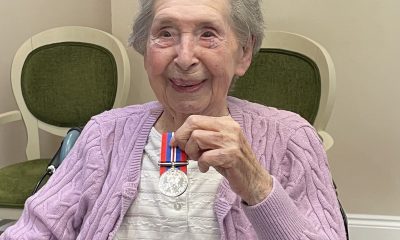By Mark Waghorn via SWNS
The anesthetic from going under the knife does not increase the risk of developing Alzheimer's after all, according to new research.
General anaesthetics impact the brain less than other risk factors such as high blood pressure, type 2 diabetes, smoking and poor education.
Post-operative cognitive dysfunction (POCD) causes impaired memory and concentration. It can be short-lived or last months or even years.
Recent studies have suggested some sufferers are more prone to dementia.
No such association was identified among more than 1,800 older people tracked for over 12 years.
"Our study suggests repeated exposure to surgery under general anesthesia has little effect on long-term cognitive decline, with subtle impairments in the ability to focus on specific tasks and how quickly you can process information and make decisions based upon that information,"said lead author Dr. Christoph Pennings.
"Instead, it appears patient factors such as a history of high blood pressure, diabetes and educational level are more important for the speed of cognitive decline over an individual's lifetime.
"These patient factors seem to be more important, but also better modifiable factors than a necessary operation under general anaesthesia."
Dr. Pennings, of Maastricht University Medical Centre, said the findings could aid efforts to help keep minds sharp.
Older people often experience worsening brain function after being sent into a deep sleep by an anesthetic.
It affects around one in ten in 10 over 60s up to three months later. Diagnostic criteria have not yet been established.
About a third of patients have some kind of problem, including confusion, in the following days.
Many relatives complain their loved ones were "never quite the same" after a major operation.
Surgeries in older people are becoming more common. The number of Britons aged 65 and above is set to soar from 12 to 20 million in the next two decades.
This represents substantial numbers of people at potential risk, say the Dutch team.
Men and women across the Netherlands were interviewed at the outset and six and 12 years on. Their average age was 51.
Each time they underwent a medical exam and tests that measured learning, memory, executive function and information processing.
A color and brain teaser called Stroop in which a word like "blue" or "purple" is printed in green or red ink analyzed mental speed and attention.
Modeling was used to look at the cognitive development of participants and correlated those to independent risk factors.
Patients who had received at least one general anaesthetic were much more likely to perform worse on Stroop than peers who remained surgery free.
But the number of general anaesthetics did not appear to impact other areas of cognitive function and performance.
This was after taking into account other medical and lifestyle habits, including drinking, that increase the risk of cognitive decline.
For example high blood pressure, high cholesterol and type 2 diabetes significantly reduced selective attention, mental speed and information processing speed.
Educational level significantly impacted all of these - as well as learning and memory.
"There is natural continuum of cognitive decline during an individual's lifetime,"said Dr. Pennings.
"So after 12 years almost everyone in the study will have developed some form of cognitive decline.
"Different individuals cognitively age in different ways-the decline may be sudden or gradual, invalidating or mild."
Patients who had been through more than two general anaesthetics by the start of the study tended to be older.
They were also more likely to have other health conditions such as high blood pressure, coronary artery disease or high cholesterol compared to those who had never had an operation.
The findings were presented at Euroanaesthesia, a virtual meeting of the European Society of Anaesthesiology and Intensive Care.

 Parenting1 week ago
Parenting1 week ago
 Lifestyle1 week ago
Lifestyle1 week ago
 Wildlife3 days ago
Wildlife3 days ago
 Good News4 days ago
Good News4 days ago
 Health4 days ago
Health4 days ago
 Entertainment1 day ago
Entertainment1 day ago
 Broadcast12 hours ago
Broadcast12 hours ago
 Travel4 days ago
Travel4 days ago






















